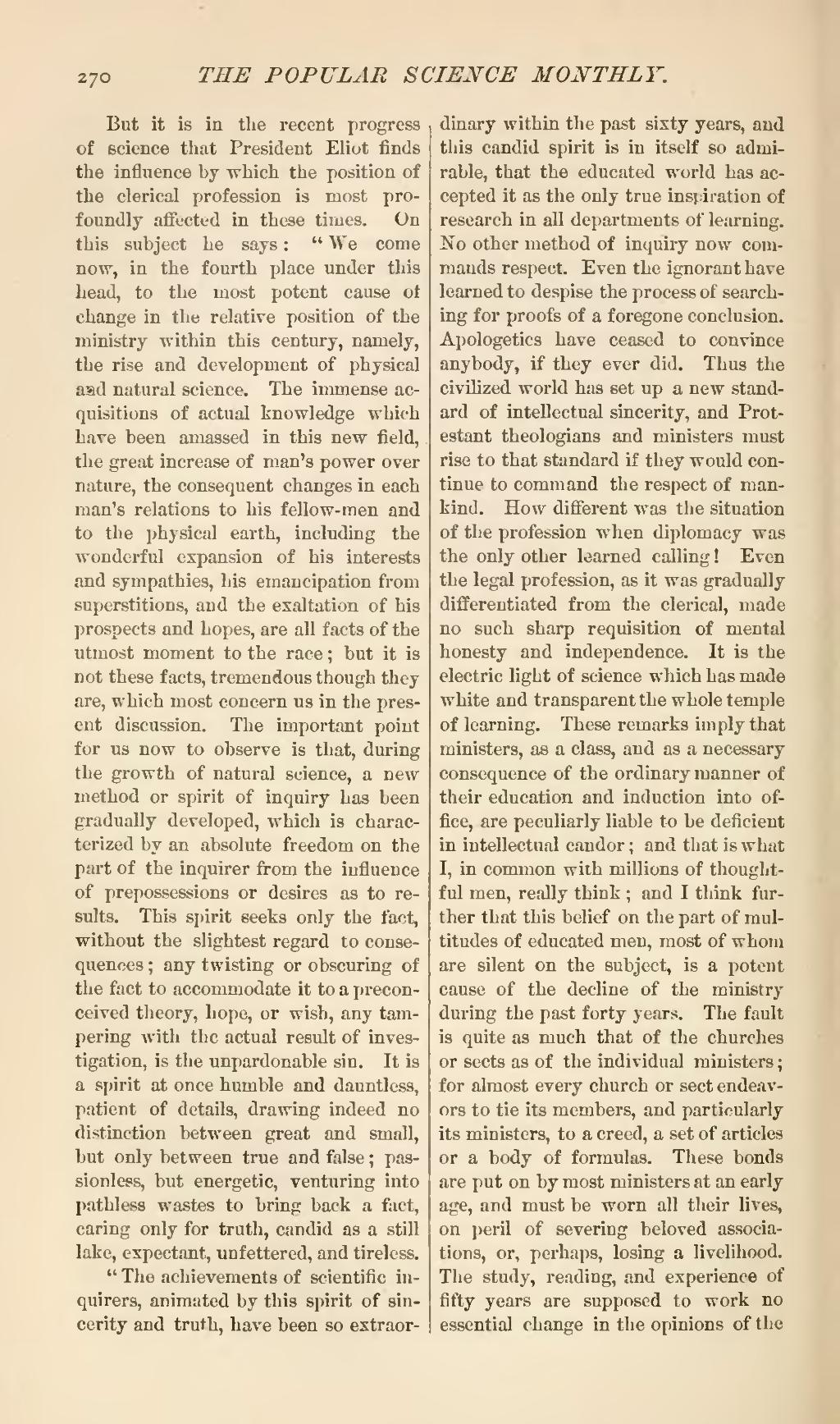But it is in the recent progress of science that President Eliot finds the influence by which the position of the clerical profession is most profoundly affected in these times. On this subject he says: We come now, in the fourth place under this head, to the most potent cause of change in the relative position of the ministry within this century, namely, the rise and development of physical and natural science. The immense acquisitions of actual knowledge which have been amassed in this new field, the great increase of man's power over nature, the consequent changes in each man's relations to his fellow-men and to the physical earth, including the wonderful expansion of his interests and sympathies, his emancipation from superstitions, and the exaltation of his prospects and hopes, are all facts of the utmost moment to the race; but it is not these facts, tremendous though they are, which most concern us in the present discussion. The important point for us now to observe is that, during the growth of natural science, a new method or spirit of inquiry has been gradually developed, which is characterized by an absolute freedom on the part of the inquirer from the influence of prepossessions or desires as to results. This spirit seeks only the fact, without the slightest regard to consequences; any twisting or obscuring of the fact to accommodate it to a preconceived theory, hope, or wish, any tampering with the actual result of investigation, is the unpardonable sin. It is a spirit at once humble and dauntless, patient of details, drawing indeed no distinction between great and small, but only between true and false; passionless, but energetic, venturing into pathless wastes to bring back a fact, caring only for truth, candid as a still lake, expectant, unfettered, and tireless.
"The achievements of scientific inquirers, animated by this spirit of sincerity and truth, have been so extraordinary within the past sixty years, and this candid spirit is in itself so admirable, that the educated world has accepted it as the only true inspiration of research in all departments of learning. No other method of inquiry now commands respect. Even the ignorant have learned to despise the process of searching for proofs of a foregone conclusion. Apologetics have ceased to convince anybody, if they ever did. Thus the civilized world has set up a new standard of intellectual sincerity, and Protestant theologians and ministers must rise to that standard if they would continue to command the respect of mankind. How different was the situation of the profession when diplomacy was the only other learned calling! Even the legal profession, as it was gradually differentiated from the clerical, made no such sharp requisition of mental honesty and independence. It is the electric light of science which has made white and transparent the whole temple of learning. These remarks imply that ministers, as a class, and as a necessary consequence of the ordinary manner of their education and induction into office, are peculiarly liable to be deficient in intellectual candor; and that is what I, in common with millions of thoughtful men, really think; and I think further that this belief on the part of multitudes of educated men, most of whom are silent on the subject, is a potent cause of the decline of the ministry during the past forty years. The fault is quite as much that of the churches or sects as of the individual ministers; for almost every church or sect endeavors to tie its members, and particularly its ministers, to a creed, a set of articles or a body of formulas. These bonds are put on by most ministers at an early age, and must be worn all their lives, on peril of severing beloved associations, or, perhaps, losing a livelihood. The study, reading, and experience of fifty years are supposed to work no essential change in the opinions of the
